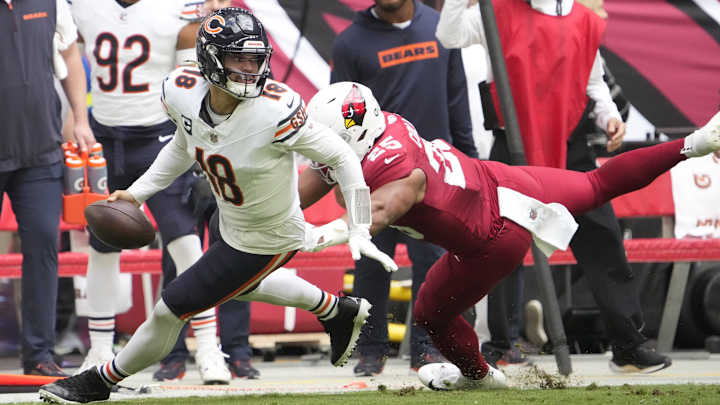Caleb Williams isn’t the only reason for the Bears’ offensive issues, according to offensive coordinator Shane Waldron. He describes presnap penalties as a “plague” on the offense, which is struggling to score early in games. The Bears have just 10 first-quarter points this season, ranking near the bottom of the NFL, as Waldron works to address costly mistakes such as penalties and sacks that often leave Williams facing long third downs.
Waldron explains that negative plays, particularly on early downs, have been a recurring problem. “When we’re able to stay efficient, we get more run plays in, balancing the run and pass, and we’re setting ourselves up for second-and-short or third-and-manageable situations,” he says. The Bears have been sacked at one of the highest rates in the league, allowing 3.5 sacks per game, with only Cleveland faring worse.
Their presnap penalties are equally concerning. The Bears lead the league, tied with Miami, in illegal formation violations and have committed numerous false starts and illegal shifts. These penalties compound the pressure on Williams and the offense, forcing them into unfavorable positions and giving the defense an edge, often leading to more sacks.
Some blame falls on the offensive line, but tight end Cole Kmet notes it’s more complex. “It’s not just the line,” he explains, emphasizing the need for receivers to run routes correctly, backs and tight ends to be alert, and Williams to manage protections properly. While the line has responsibilities, Williams has also been at fault for holding onto the ball too long or scrambling into sacks.
Waldron acknowledges the “high number of sacks” as a top priority to address, noting that each sack impacts drives and scoring chances significantly. He stresses that the Bears have focused on reducing sacks to improve their second- and third-down success rates.
Waldron admits it’s late in the season to still be dealing with alignment issues and presnap mistakes, saying, “These are issues we need to keep working on because they’ve lasted longer than we’d like.” He emphasizes addressing these with players, ensuring they understand why the penalties are happening, and focusing on execution going forward.
